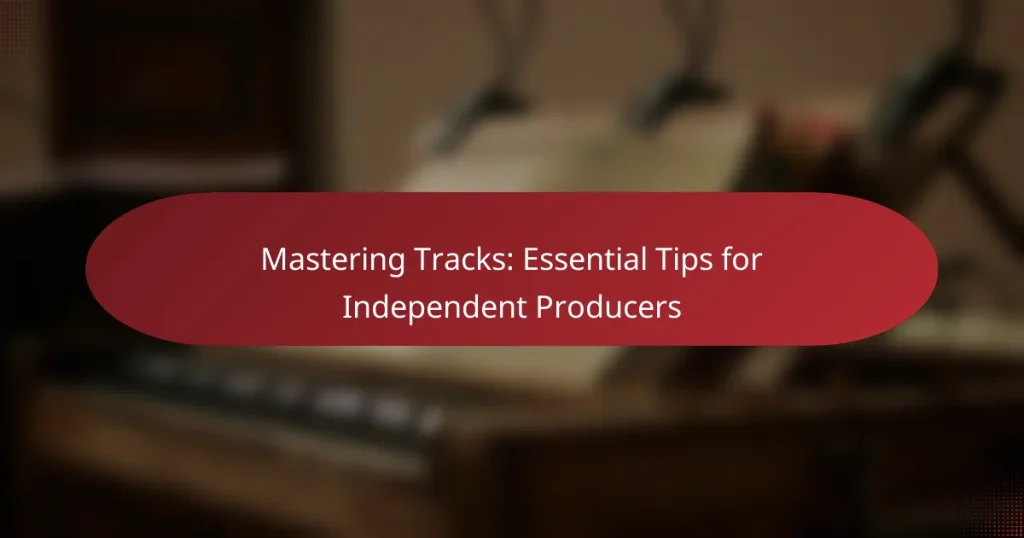
Mastering Tracks: Essential Tips for Independent Producers
Mastering tracks is a crucial step for independent producers looking to elevate their music to…
Digital music production courses offer a comprehensive blend of practical skills and theoretical knowledge, making them suitable for learners at all levels. Through hands-on projects and expert feedback, students gain proficiency in essential techniques such as mixing, mastering, and sound design, all while using industry-standard software. Choosing the right course involves evaluating your skill level and ensuring the program aligns with your professional goals.
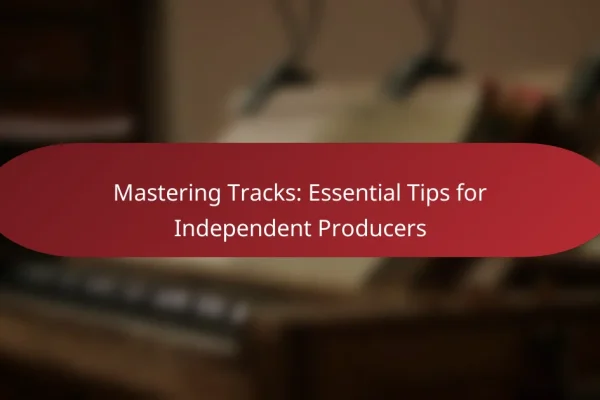
Mastering tracks is a crucial step for independent producers looking to elevate their music to a professional level. By focusing on high-quality audio samples, effective mixing techniques, and utilizing the right mastering plugins, producers can create polished sounds that resonate across various playback systems. Incorporating essential tools and understanding key concepts like dynamic range and…
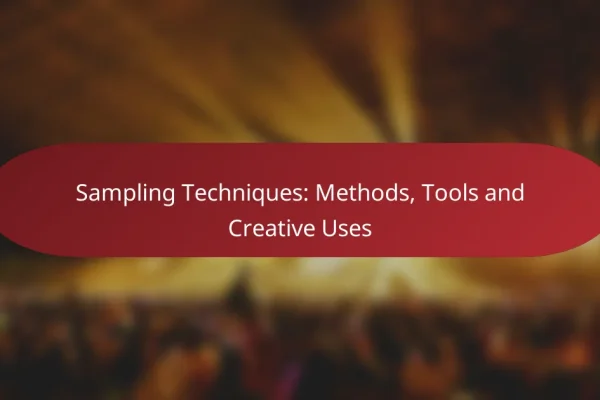
Sampling techniques are essential for collecting representative data, particularly in the realm of digital products. By selecting appropriate methods, researchers can minimize bias and enhance the validity of their findings, ultimately leading to more informed decision-making. Various tools are available to aid in the sampling process, each designed to streamline data collection and analysis, ensuring…
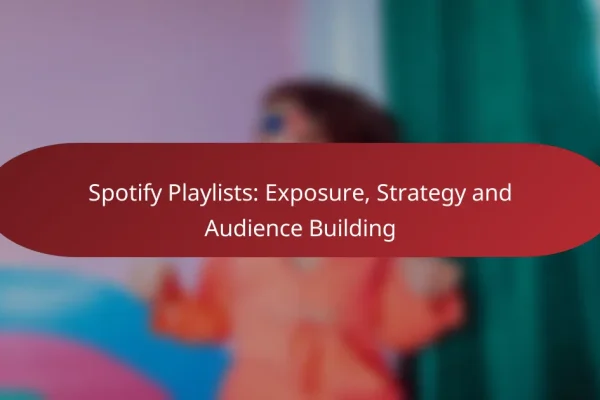
Spotify playlists serve as a powerful tool for artists seeking to enhance their exposure and connect with a broader audience. By strategically targeting specific listener groups and leveraging playlist performance metrics, musicians can effectively increase their streams and visibility in a competitive landscape. Understanding how to navigate Spotify’s algorithm and create engaging thematic playlists is…
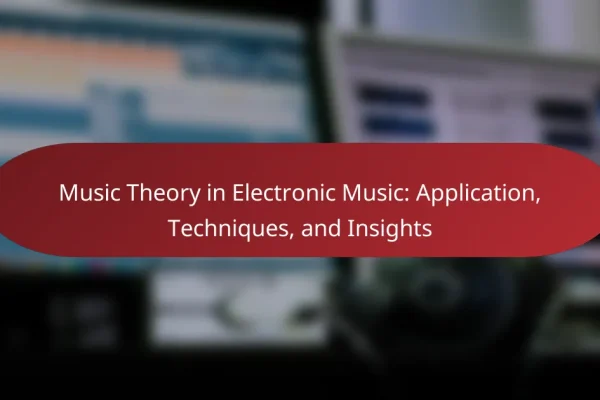
Music theory serves as a crucial foundation for electronic music production, enabling artists to develop harmonies, melodies, and rhythms that captivate audiences. By mastering key elements such as harmony, melody, and rhythm, producers can create structured compositions that are both innovative and technically proficient. Techniques like improvisation, sound layering, and sampling further enhance creativity, allowing…
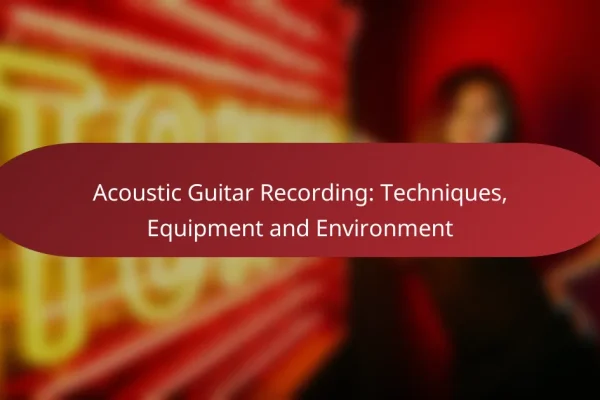
Recording acoustic guitar requires a keen understanding of techniques, equipment, and the recording environment to capture its rich, natural sound. Utilizing methods like close-miking and room miking, along with high-quality microphones and audio interfaces, can greatly improve the recording’s clarity and depth. Additionally, an optimized recording space that minimizes noise and controls sound reflections is…
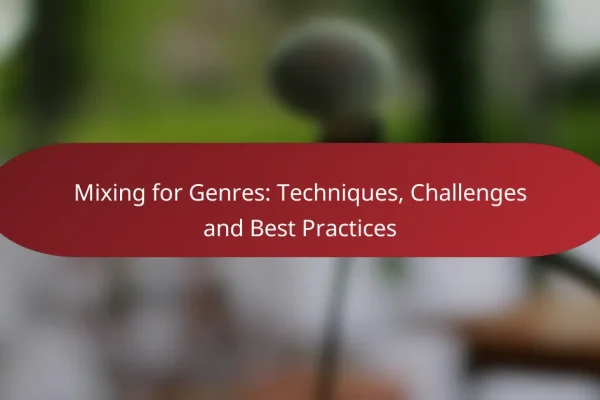
Mixing for different music genres requires a nuanced understanding of specific techniques and challenges unique to each style. By employing methods such as layering instruments and applying tailored EQ settings, producers can create mixes that not only respect the essence of the genre but also maintain clarity and balance. Additionally, the use of digital tools…
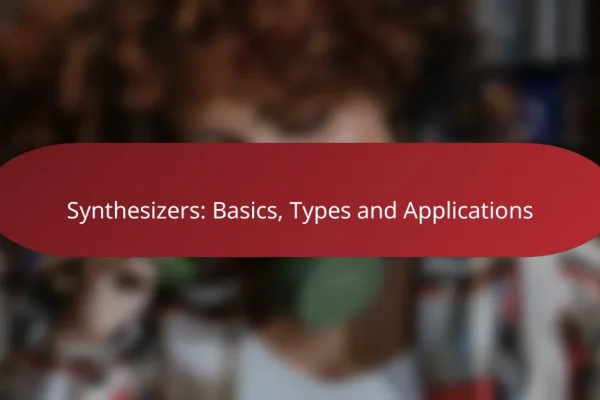
Synthesizers are electronic instruments that generate sound by manipulating electrical signals, allowing for a diverse range of audio textures and tones. They come in various types, including analog, digital, and modular synthesizers, each with unique characteristics suited for different applications in music production. For beginners, user-friendly and versatile synthesizers provide an enjoyable platform for learning…
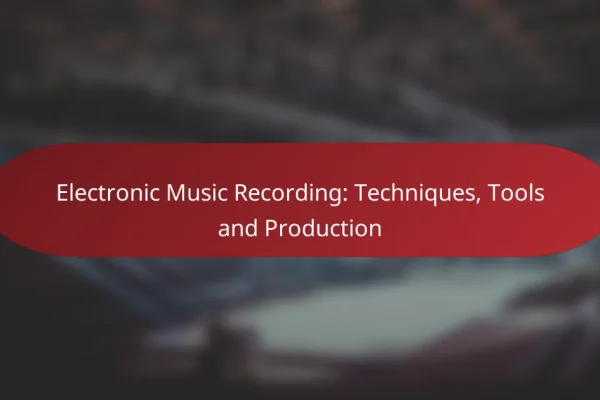
Electronic music recording encompasses a variety of techniques and tools designed to enhance creativity and sound quality. Key methods include sound layering, effective MIDI usage, and meticulous mixing and mastering. Essential tools such as Digital Audio Workstations (DAWs), synthesizers, and plugins are crucial for producing polished tracks that resonate with listeners. What are the best…
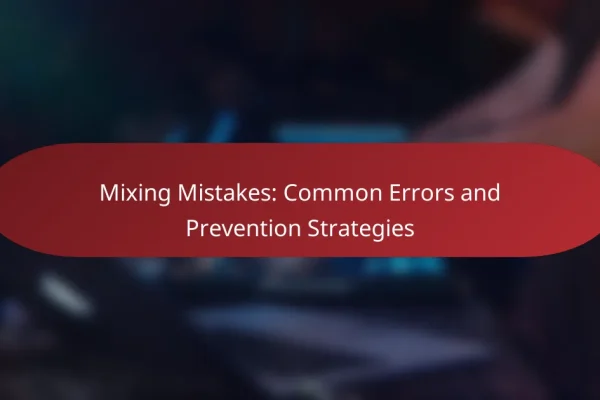
Mixing mistakes in baking can significantly affect the texture and flavor of your creations, often resulting from improper techniques or ingredient misunderstandings. To avoid these pitfalls, it’s essential to prioritize precision, technique, and the right tools for the job, ensuring that your mixtures achieve the desired consistency and success. What are common mixing mistakes in…
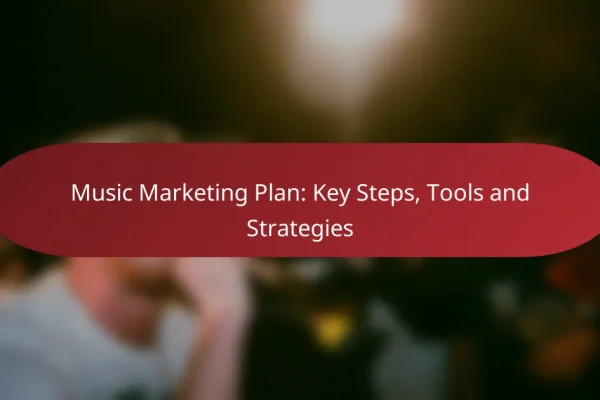
A music marketing plan is crucial for effectively promoting an artist or album, encompassing steps such as defining the target audience, setting goals, and developing a content strategy. By leveraging various tools and platforms, artists can enhance their outreach and engagement, ultimately maximizing their audience reach. Utilizing social media for direct fan interaction and targeted…
The best digital music production courses combine practical skills with theoretical knowledge, catering to various experience levels. They often include hands-on projects, expert feedback, and access to industry-standard software.
The Berklee Online Music Production Course offers a comprehensive curriculum designed for aspiring producers. It covers essential topics such as recording techniques, mixing, and mastering, using industry-standard software like Pro Tools and Logic Pro.
This course is structured over 12 weeks, allowing students to learn at their own pace while engaging in practical assignments. The program also provides access to Berklee's extensive network of music professionals, which can be invaluable for career development.
The Coursera Music Production Specialization consists of multiple courses that guide learners through the music production process. It includes modules on music theory, audio engineering, and digital audio workstations (DAWs), making it suitable for beginners and intermediate producers alike.
Students can expect to spend around 4-6 hours per week on coursework, with opportunities to collaborate on projects with peers. Completing this specialization can enhance your resume and provide a solid foundation for further studies or professional work in music production.
The MasterClass with Deadmau5 offers a unique perspective from an industry icon. This course focuses on electronic music production, covering topics such as sound design, arrangement, and the creative process behind hit tracks.
With a mix of video lessons and practical assignments, students can learn directly from Deadmau5's experiences. The course emphasizes creativity and experimentation, encouraging producers to develop their own unique sound while applying the techniques discussed.
Choosing the right music production course involves assessing your current skills, understanding the course format and duration, and ensuring the instructors are industry-recognized. This approach helps you find a program that aligns with your learning goals and professional aspirations.
Start by evaluating your existing knowledge of music production. Are you a beginner, intermediate, or advanced learner? This self-assessment will guide you toward courses that match your proficiency, ensuring you gain the most from the experience.
For beginners, look for introductory courses that cover the basics of digital audio workstations (DAWs) and sound design. Intermediate and advanced students may benefit from specialized courses focusing on mixing, mastering, or specific genres.
Course format can significantly impact your learning experience. Options typically include online classes, in-person workshops, or hybrid models. Online courses offer flexibility, while in-person sessions provide hands-on experience and networking opportunities.
Duration is also a key factor. Short courses may last a few weeks and focus on specific skills, while comprehensive programs can span several months or even years. Determine how much time you can commit and choose a course that fits your schedule.
Instructors with industry recognition can enhance your learning by providing real-world insights and connections. Research the backgrounds of potential instructors to ensure they have relevant experience in music production.
Look for courses taught by professionals who have worked with notable artists or have experience in successful studios. Their expertise can offer valuable perspectives and practical knowledge that can be beneficial for your career.
In digital music production courses, you will learn key techniques that are crucial for creating professional-quality music. These include mixing and mastering, sound design, and music theory tailored for producers.
Mixing involves balancing audio levels, panning sounds, and applying effects to create a cohesive track. Mastering is the final step, ensuring your music sounds polished and consistent across different playback systems. Understanding both processes is essential for achieving a professional sound.
Key techniques include using equalization (EQ) to enhance or reduce specific frequencies, compression to control dynamics, and reverb to add depth. A common pitfall is over-processing; aim for clarity and balance instead of excessive effects.
Sound design focuses on creating unique audio elements using synthesizers, samples, and effects. It involves understanding waveforms, modulation, and signal flow to craft sounds that fit your musical vision. Experimentation is vital in developing your own signature sounds.
Start by exploring different synthesis methods such as subtractive, additive, and FM synthesis. Use layering techniques to combine sounds for richer textures. Remember to keep your sounds relevant to the genre you are producing, as this can greatly affect the overall impact of your music.
Music theory provides a framework for understanding melody, harmony, and rhythm, which are essential for effective music production. Familiarity with scales, chords, and song structures can enhance your creativity and help you communicate ideas more clearly.
Focus on learning basic chord progressions and how they relate to different genres. Understanding the circle of fifths can also aid in key modulation and composition. Avoid getting too caught up in theory; practical application is key, so apply what you learn directly to your projects.
The costs of digital music production courses can vary widely based on factors such as course length, format, and the institution offering them. Generally, you can expect to invest anywhere from a few hundred to several thousand dollars depending on the depth and quality of the program.
Online digital music production courses typically range from around $100 to $2,000. Introductory courses often fall in the lower range, while comprehensive programs that include personalized feedback and advanced techniques can be on the higher end. Many platforms offer free trials or introductory lessons to help you gauge the course quality before committing.
When considering digital music production courses, you may encounter both subscription models and one-time fees. Subscription models usually charge a monthly fee, granting access to a library of courses and resources, which can be cost-effective if you plan to take multiple classes. One-time fees, on the other hand, provide lifetime access to a specific course, making them suitable for focused learning without ongoing costs.
Many educational platforms offer financial aid options to help students afford digital music production courses. This can include scholarships, payment plans, or income-based discounts. Additionally, some institutions may participate in government-funded programs that provide assistance for eligible students, making it easier to pursue your music production education without financial strain.
Music production courses often focus on a few key software programs that are widely used in the industry. These tools help aspiring producers learn essential techniques for creating, mixing, and mastering music.
Ableton Live is favored for its intuitive interface and versatility, making it ideal for both live performances and studio production. It offers features like session view for improvisation and arrangement view for traditional editing, which cater to different creative processes.
When using Ableton Live, consider its extensive library of sounds and effects, which can enhance your projects. Beginners should explore its built-in tutorials to quickly grasp the basics and start producing music efficiently.
Logic Pro X is a comprehensive digital audio workstation (DAW) known for its powerful MIDI capabilities and high-quality audio recording. It is particularly popular among Mac users and offers a wide range of virtual instruments and plugins.
For effective use of Logic Pro X, take advantage of its Smart Controls and Flex Time features to streamline your workflow. New users might benefit from starting with simple projects to familiarize themselves with its extensive functionalities.
FL Studio is recognized for its user-friendly interface and strong focus on beat-making and electronic music production. Its pattern-based workflow allows for quick composition and arrangement, making it a favorite among beginners and experienced producers alike.
To maximize your experience with FL Studio, utilize its step sequencer and piano roll for creating intricate rhythms and melodies. Beginners should experiment with the demo version to explore its features before committing to a purchase.